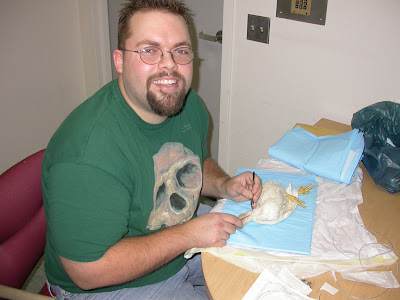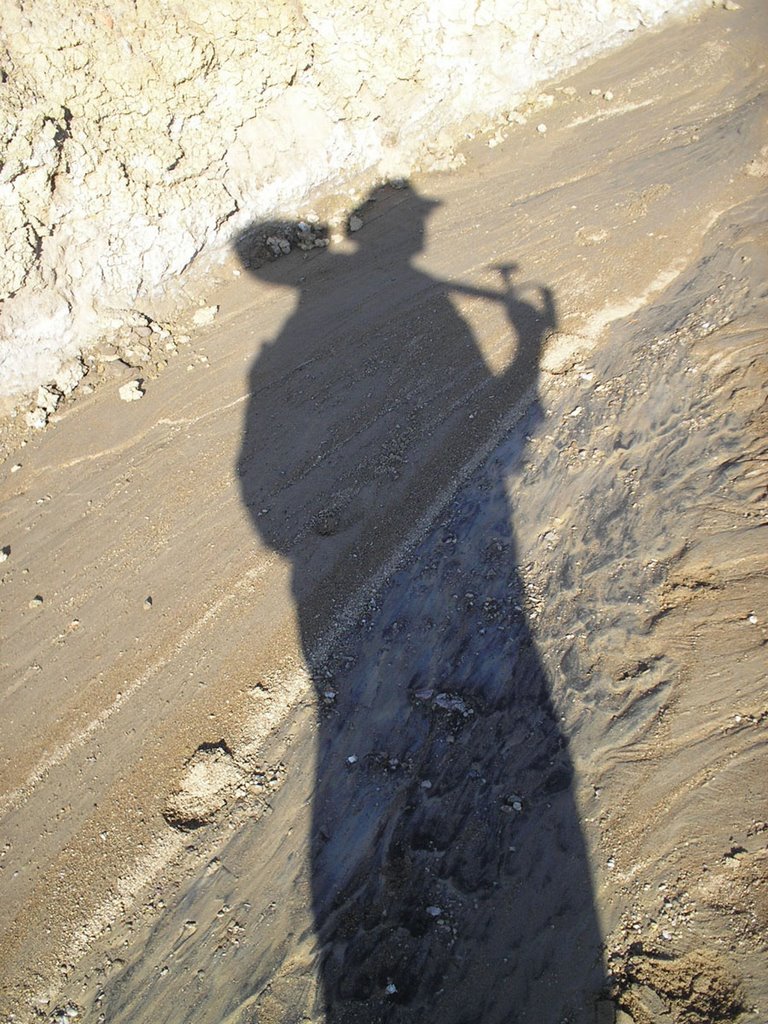Playing Darwin's God

Figure 1. The Lesser Tadwee of southern Uqbar.
I don't want to play God.
All I want is the ability to live for billions of years, see and control everything that transpires on Earth, and speed up and slow down time at my leisure.
Why do I want these powers? I blame Dougal Dixon. His book After Man: A Zoology of the Future came out when I was still in grade school. I was freakin' fas-cin-ated. After After Man I was much taken with Dixon's The New Dinosaurs, Wayne Douglas Barlowe's Expedition, the awesome but dead-link-ridden Speculative Dinosaur Project, the creations of Nemo Ramjet, so on and so forth, imaginary zoology without end.

Figure 2. One of Nemo Ramjet's horrors.
I want the powers, obviously, so that I can tinker with evolution. Here are some experiments I have planned, just in case I wake up some morning with the aforementioned abilities. Most of them involve you either dying right now or never coming into existence, so I'll understand if you think they suck.
1. Humans go extinct immediately, and global temperatures rise to Jurassic levels over, say, 20 million years. When will Antarctica lose its ice cap? How fast? How much of the newly exposed land will be under water, and how fast will isostasy bring it back up? What will colonize this empty continent? Birds, obviously, but what else? What terrestrial flora and fauna will colonize Australia? How long will it take? It's a long haul to the nearest sizeable landmasses; on the other hand, transoceanic dispersal is apparently more common than we thought (de Queiroz 2005 Trends in Ecology and Evolution 20:68-73).
2. Another Antarctica experiment. The land bridge connecting Antarctica to South America never breaks. The circumpolar current never forms and Antarctica does not ice over. No polar ice caps, no ice ages. What survives on Antarctica? What happens in the rest of the world? In the warmer, wetter climate, Africa will probably be covered in forest, not savanna. What hominids, if any, evolve? Ooh, ooh, ooh--with the addition of Antarctica, South America ought to have more land area than North America. Maybe South America wins the Great American Interchange. That would be rad!

Figure 3. A truly fantastic image of SpecWorld.
3. Go back to the end of the Cretaceous. I know what you're thinking, but you're dead wrong, foo'. The dinosaurs DO go extinct. Everywhere except Australia. I don't care what the mechanism was, asteroid, or, uh, one of those lame reasons--whatever it is, it skips the Land of Oz. What do these dinosaur do with the Cenozoic? What do the monotremes and marsupials do with them dinosaurs? What happens during the Pleistocene? Do any of those dinAusaurs cross the ole Wallace Line and wreck some Asiatic shop? Or do the Aborigines smoke their asses 'til they ain't no moa? Ha ha hee hee.
4. Go back to the Permian. You know that part where the continents split up? Yeah, not so much this time. Fast forward to the Mesozoic. Any dinosaurs around, or did they lose out to the therapsids? Or did the harsh conditions on the mostly-desert supercontinent favor archosaurs right from the start, so that mammals don't even get a toehold? And what's going on geologically with this unnaturally large and long-lasting landmass? Those hot spots are still going to be burning. Maybe Pangaea is pocked with resurgent calderas. A desert supercontinent stocked with volcanoes and dinosaurs? Sounds like a nice getaway.
5. Starting now, all tetrapods go extinct except turtles. No more mammals, birds, crocs, lizards, snakes, amphibians... Obviously turtles are going to have to step up and take over the world. But how? I mean, they're turtles. Or maybe the turtles don't take over the world. Maybe fish beat them to the punch. Could they get out of the water in time to give the turtles some fight? Maybe not. But think about it, man! Super-tall giraffe turtles. Lean, mean cheetah turtles. Blind cave turtles. Giant whale turtles.
Top THAT.
Seriously. If you had the aforementioned powers, what experiments would you do?
Labels: Animals, Dinosaurs, Nerdosity, Not Quite Science, Posts That Provoked Spirited Discussion, Speculative Zoology


